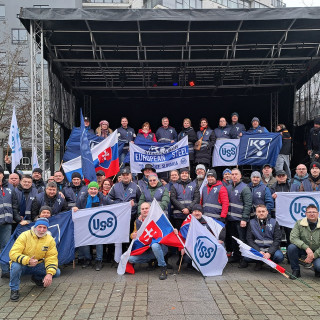Tricky Words in this week's OVI
Part of Central European culture is the use of titles in front of people's names. People from English-speaking countries coming here unprepared could get an impression of great formality in
relationships when they hear people calling each other by their titles rather than their names. Later when they learn about formal and informal "you" in Slovak grammar, they may understand how this
custom fits with the use of the language in formal style.
It's also useful sometimes if you don't know (or can't remember) the other person's name. University degrees are expressed as titles here (in English-speaking countries they are "letters after the
name"), and they're tricky to translate. "Inžinier" is not a job title - it is not "engineer", because that means "strojár" (you can't talk about an "engineer of economics" in English). "Inžinier"
means a graduate of a technical university or college - a technical graduate - and it doesn't indicate what sort of job somebody does.
Andy's Wordshop
The question arising from today's Tricky Words is: why is there this cultural difference in the use of titles between Central Europe and English-speaking countries? The custom of using titles here
is a remnant of the past influence of Germany and Austria-Hungary in Central Europe. I'm going to put my head on the block here and say that it's "German" versus "English" thinking.
German philosophers, for example, tend to be concerned with abstract, ideal concepts (e.g. pure reason, or workers' control of the means of production). English philosophers are more concerned with
empirical, pragmatic issues (e.g. how political systems work in practice). Maybe "German thinking" leads people to emphasize status (idealistic), while "English thinking" emphasizes performance
(empirical). What you are is one thing; what you can do is another. PS: I don't have an axe to grind with German people.
Mike Piekut sa zúčastnil slávnostného odovzdania zmodernizovanej nemocničnej izby a chirurgického prístroja v DFN Košice.











